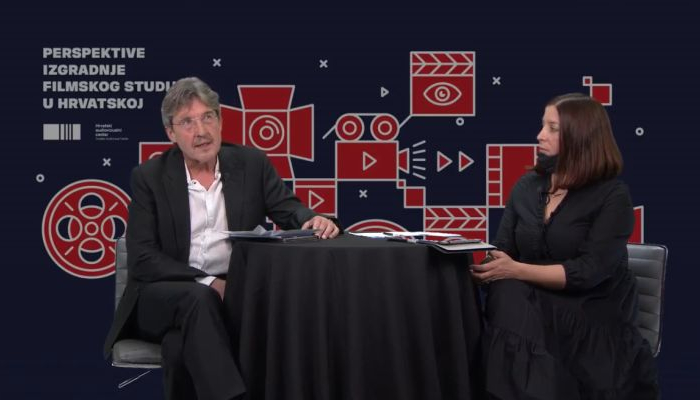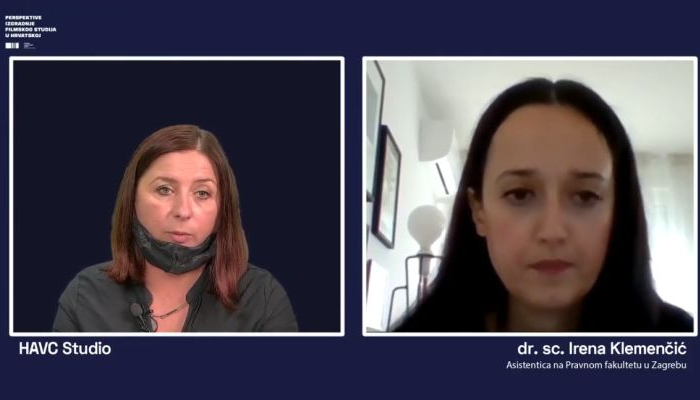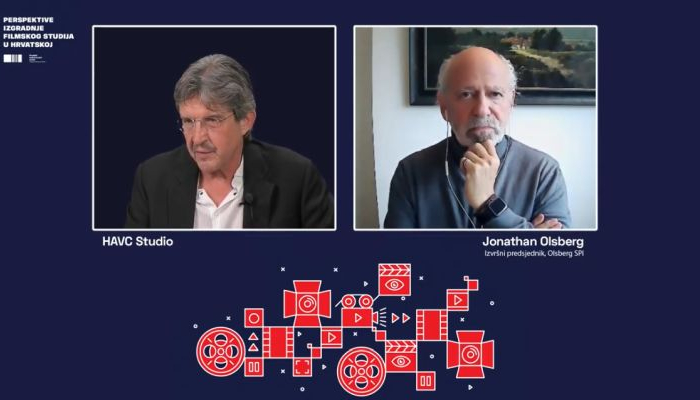Prospects for a film studio in Croatia




Game of Thrones alone earned Croatian tourism 3 billion HRK. The film studio’s predicted yearly earnings would amount to approximately 2 million EUR in the second year.
On Thursday, 29th October, the Croatian Audiovisual Centre organized an online presentation of two business studies that demonstrate a great potential of investing in domestic and international filmmaking. The first study, performed by the Institute of Public Finance, covers the economic and fiscal effects of the audiovisual industry and state subsidies and incentives in Croatia, while the second study researched the potential for opening a film studio complex (available on the following link).
At the presentation, the introduction was given by Chris Marcich, the CEO of the Croatian Audiovisual Centre, pointing out that the idea for opening a film studio complex in Croatia has existed for some time, in order to retain a competitive edge and pave the way for even better results of the Croatian AV industry, which is a commitment stipulated by the National Strategic Programme for Audiovisual Industry.
“The two studies commissioned by the Croatian Audiovisual Centre demonstrate great potential of investing in the AV sector, since every kuna of state subsidies and incentives awarded generates on average more than 2 kunas of returns, while every kuna invested in incentives to foreign production generated a tenfold return, that is, had a multiplication factor greater than 10. Besides positive fiscal impacts, investment in Croatian film naturally also created an immeasurable contribution to Croatian culture. International productions contribute to the employment of Croatian film workers, have a favourable effect on Croatia’s branding and promotion and impact other sectors, especially tourism. Opening a film studio complex will additionally boost the export of film services, however, it will also be important for Croatian filmmakers to have access to the studio,” stressed Chris Marcich, adding that “there is investor interest in the project, with the possible investment totalling 80 million EUR.”
Irena Klemenčić from the Croatian Institute of Public Finance presented the research data demonstrating that state support and incentives to the AV industry are an established and indispensable practice in EU member states. These incentives are also highly worthwhile, since every kuna of public money invested generates an average return of 2.4 HRK. When it comes to incentives to the so-called film services export, that is, incentives for attracting international productions, better known as the cash rebate scheme, every invested kuna generates a return of 11 HRK, while as much as half of this amount flows directly back into the state budget. In the 2011–2017 period, the AV industry revenue grew by 74%, or approximately 10% annually. Business enterprises in the AV sector register considerable income, while in 2017 alone, the profit generated by AV activity measured 197 million HRK. The average amount of subsidies allocated in all programmes supporting AV activity in Croatia equals 83.2 million HRK per year. Since 2012, when the programme of incentives to foreign productions was introduced, until 2018, a total of 58 projects were realized. During that period, the state invested 129 million HRK, which generated local spending amounting to 680 million HRK. Not only did the entire amount of incentives awarded return directly into the budget through taxes and contributions, but the direct economic impact of the 58 co-financed AV works also totalled 226.7 million HRK, exceeding by 76% the amount of funds awarded via subsidies. Investing in encouraging the export of film services, that is, in attracting foreign productions to Croatia, demonstrates high feasibility for the state and local communities, but it is also favourable to film workers who are able to achieve additional employment and earnings through such projects. The project organized by the Croatian Audiovisual Centre and the Ministry of Culture and Media – Filming in Croatia – on the whole demonstrates that each kuna of budgetary funds generates 11.6 HRK of economic impact, while a minimum of 6.6 kunas flows directly back into the state and local budgets via taxes and contributions.
The conclusion of the research conducted by the Institute of Public Finance demonstrates that Croatia has a solid film industry incentives programme, as well as the one designed for attracting foreign producers to film in Croatia, however, the allocated budget is still considerably lower compared to counties such as the Czech Republic, Greece, Italy, Portugal or Romania. The possible positive impact on tourism is exceptionally high, Game of Thrones alone yearly attracts 60 000 visitors to Croatia, who on average stay 6 days in Croatia and spend about 90 EUR per day. The cost-effectiveness of investing in foreign productions is best exemplified by the data that in the period between 2012 and 2019, the impact of the megahit series Game of Thrones on Croatian tourism, based on a very conservative estimate, amounted to 2 to 3 billion HRK.
Jonathan Olsberg, one of the leading European consultants in the film sector (Olsberg•SPI) presented the findings of an independent study commissioned by the Croatian Audiovisual Centre and the Ministry of Culture and Media, on the feasibility of opening a film studio complex in Croatia, which go hand in hand with the conclusions of the Institute of Public Finance. Olsberg’s analysis demonstrates that despite the COVID-19 pandemic, which has temporarily halted or limited film and TV production, there is a great need for a film studio in Croatia and it will only increase once activities resume after this period of stagnation. A film studio complex would, along with the continuation of the Filming in Croatian incentives programme, attract valuable international productions to Croatia. The Olsberg study also demonstrates that public investment in the form of incentives to film and TV productions is extremely efficient, since it leverages three to four times the amount invested, which returns into the state budget through private sector inward currency flows for the same project. The availability of a film studio in Croatia would allow foreign productions to spend more time and generate considerably greater financial benefits for Croatia. In the current situation, foreign producers satisfy their needs for a studio by turning to other countries in the region such as Hungary, Czech Republic, Romania, Serbia and others.
Following the instructions of the Croatian Audiovisual Centre and the Ministry of Culture and Media, the study also took into account the needs of domestic productions and producers to have access to the studio, under special provisions. These primarily include more favourable rates of services, which would be possible if a smaller multi-purpose facility could be built within the complex available to domestic productions. The benefits would be manifold, specifically in allowing local film workers a chance to gain additional practical experience and educating new film crew members, since the current situation in Croatia has led many film workers in a different direction. Jadran Film was once a prolific source of skilled film workers, however, its glory has faded and, until now, Croatia could not economically justify undertaking the construction of another studio facility.
A film studio complex that would be based solely on domestic production would not be feasible, however, after eight years of successfully running Filming in Croatia, the programme of state incentives to foreign productions, the situation is much more promising. In such circumstances, a film studio would bring added value and a considerably larger influx of productions and capital, not only into the state budget, but also to the private sector.
Until the beginning of the pandemic, the global consumer spending on theatrical and home entertainment content in 2019 for the first time surpassed the 100 billion USD mark. The greatest portion of this, a little over 72 billion USD is taken up by five companies – Disney, Comcast, Netflix, ViacomCBS and AT&T. Amazon and Apple head the second tier, that is, companies that hold the rest of approximately 30% of total consumer spending. Certainly, a key catalyst of spending growth (and of content production) is the entry and expansion of over-the-top (OTT) streaming services. Back in 2018, Netfilx’s revenue from international subscribers exceeded the revenue from domestic subscriptions. The combined budget of leading US production companies spent on content is 91 billion USD and, until recently, this was spent mostly in California, but due to lack of local capacities, a good portion of production activity will be transferred to other countries. In this fact the Olsberg team sees a clear perspective for Croatia and its potential film studio complex. So far, the main reason foreign productions have chosen Croatia as their filming location has been the landscape, particularly the coastline and the islands, as well as towns rich in history, primarily Dubrovnik, but also Split, Trogir, and several others.
The landscape in Croatia can often double as Greece, Spain or Italy, while Zagreb can stand in for other Austro-Hungarian cities like Vienna. Another competitive advantage lies in the fact that Croatia has lower cost of shooting, which makes it more competitive compared to other Southern and Eastern European countries.
The Olsberg study naturally also takes into consideration the potential of domestic feature film, as well as the possibilities of the national public television that, in addition to its own productions, invests and should invest in independent production and high-end TV series, however, it is clear that the budgets of domestic productions cannot justify the need for an expensive film studio. The Olsberg team also analysed the circumstances in competition counties in the region: Bulgaria, Czech Republic, Romania and Serbia. Currently, the only advantage they have is the existence of studio facilities. On the other hand, Greece and Italy compete with Croatia with their coastal locations.
The Olsberg study also explored the key issues regarding financing on the level of the European Union and found that the state may become involved in financing, however, with limited funds, which may be allocated only for purposes in line with the definitions of State Aid. This, among other things, means that the state subsidy must not distort competition or the free market.
There is interest from private entities of investing in Croatia and its studio capacities, while several prospective locations have already been explored. Some of these are already quite suitable for such a project based on several criteria. The majority of these locations are situated near Zagreb, which is in itself close enough to the coast, but also contains all other resources, as well as the largest portion of film workers, needed for working in the studio complex and on film and TV productions.
Olsberg’s financial approximations, which are at this point only projections and primarily depend on effectively attracting foreign productions – very successful in the past eight years – indicate that the project of opening a film studio complex in Croatia is indeed justified and financially feasible. The estimated annual income would amount to approximately 2 million EUR in the second year, while this amount would double within five years. The COVID-19 pandemic should not affect the project of constructing and opening the film studio, especially since there are currently many projects on hold, waiting to resume development or shooting.
The entire presentation Prospects for opening a film studio in Croatia is available on the following link (in Croatian).
Cover photographs: Chris Marcich and Tanja Ladović Blažević; Tanja Ladović Blažević and Irena Klemenčić; Chris Marcich and Jonathan Olsberg; presentation visuals
